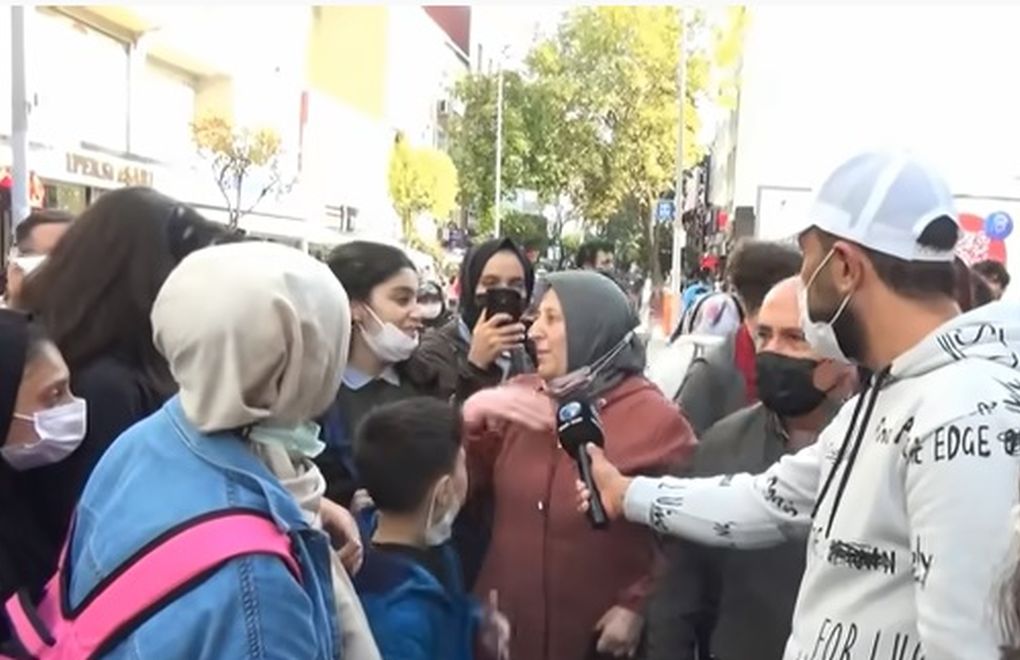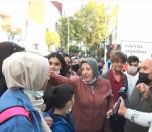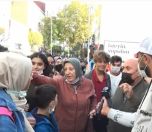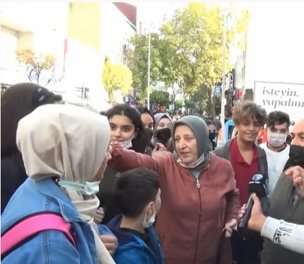Click to read the article in Turkish
The Peoples' Democratic Party (HDP) Commission on Migrants and Refugees has released a statement about the decision to deport seven citizens of Syria over their "banana-eating" videos on social media.
After a citizen in İstanbul targeted Syrians in a street interview by saying, "I cannot eat bananas", some Syrians protested these targeting remarks on social media by posting their videos while eating bananas. Shortly afterwards, Turkey's Migration Authority announced that seven people who posted such videos on social media would be deported from Turkey.
In a statement by Gülsüm Ağaoğlu and Veli Saçılık, the Co-Spokespersons for the HDP Commission on Migrants and Refugees, it is said, "Both the ruling party and some opposition parties become a party to the propaganda depicting migrants as the cause of economic and social crisis."
CLICK - Seven refugees to be deported over 'banana' videos
Referring to the attacks on migrants' houses and shops in Ankara's Altındağ in August 2021, the HDP statement has underlined that "since the attempted racist lynch targeting migrants in Ankara's Altındağ, the attitude of the state towards migrants has visibly become tougher."
"The authorities, who have to prevent attempted lynchings, identify the ones who committed crimes and give the necessary penalties, are committing crimes by taking migrants into custody for no reason, imprisoning them in Removal Centers and subjecting them to practices that reach the point of torture," the statement of the HDP has underlined.
'Their legal rights eliminated'
The party has stressed that the attitude of "they are guests, guests should know their place", which disregards international conventions and human rights, arbitrarily eliminates the legal rights of migrants.
Sharing details about the recent developments about the "banana-eating videos", the HDP has said that "11 young people from Syria who shared videos while eating bananas have been detained in different districts of İstanbul and their moment of detention has been served to the press."
The party has raised concerns that "the migrants, who are deprived of their all political, legal and economic rights are depicted as parasites who live in extravagance and consume the means of citizens," adding:
The fabricated propaganda against the migrants who are employed in conditions of slavery, whose labor is eploited and who do not even have safety of life paves the way for new lynch attacks.
Referring to the decision to deport the migrants "because they ate bananas in a provocative manner", the HDP has underlined that "it is an example of how migrants may be arbitrarily denied their rights.
"It is a fundamental human right guaranteed by the Constitution and international conventions that migrants participate in the long-standing debates about themselves, express their opinions and criticize," the HDP statement has read, adding that "it is a violation of right in itself that they are deported from Turkey on the grounds that they exercised this right."
"While the war in Syria, which Turkey is also a party to and which it even escalates, is still ongoing, migrants cannot be left for dead with the 'banana-eating videos' used as an excuse. This act is openly a crime against the right to life and fundamental human rights," the HDP has concluded.
What happened?
Turkey's migration authority, the General Directorate of Migration Management, has announced that seven refugees have been detained for "provocative social media posts" and will soon be deported.
During a street interview in İstanbul, a man claimed that refugees are financially more comfortable than locals and said, "I can't [afford] bananas. They buy kilos of them." There was also a refugee woman among the interviewed, who said, "I'm a Syrian, too. I'm a student here. If there wasn't a war in Syria, we wouldn't have to come here. There is nothing we can do."
After this video went viral, several refugees shared videos while eating bananas. The police started working to identify everyone who shared such videos on social media, the Directorate said. It did not provide further reason for the deportation of the refugees. (RT/SD)








